News
+ more news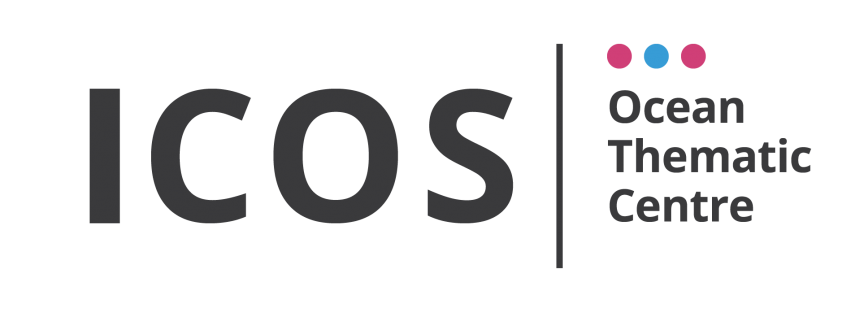
First pCO2 data available in near-real time from the Integrated Carbon Observation System - Ocean Thematic Centre (ICOS-OTC)
Wednesday, 09 October 2019
We are excited to let you know that the European Research Infrastructure Integrated Carbon Observation System Ocean Thematic Centre (ICOS OTC) now delivers data with partial pressure of CO2 in water, together with ancillary measurements, from several stations in near-real time (NRT) mode. You can search, preview and download the NRT data from the ICOS Carbon Portal (https://www.icos-cp.eu/) by selecting “ICOS OTC NRT Product” under data type as in HERE. Currently, you can view NRT data from R/V G. O. Sars (PI: Ingunn Skjelvan, NORCE Norwegian Research Centre) and from M/S Nuka Arctica (PIs: Are Olsen and Meike Becker; University of Bergen) from the ICOS Norway network.
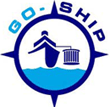
Updated GO-SHIP nutrient manual published
Thursday, 03 October 2019
On behalf of the International SCOR working group #147, ‘Towards comparability of global oceanic nutrient data’ and the writing team led by Susan Becker (SIO-UCSD, USA), we are happy to inform you that the updated version of the GO-SHIP nutrient manual entitled: “The precise and accurate determination of dissolved inorganic nutrients in seawater; Continuous Flow Analysis methods and laboratory practices” has been published. This GO-SHIP manual is a rewrite of the original version by Hydes et al. (2010), and reviews basic sample collection and storage, aspects of CFA using an Auto-Analyzer, and specific nutrient methods in use by many laboratories doing repeat hydrography. The document also covers laboratory best practices including quality control and quality assurance (QC/QA) procedures to obtain the best results, and suggests protocols for the use of reference materials (RM) and certified reference materials (CRMs).
The document is available from our site HERE as well as from the Ocean Best Practices site: http://dx.doi.org/10.25607/OBP-555. We encourage you to include the correct document citation when referring to its contents.

2020 SCOR Visiting Scholars Program
Wednesday, 02 October 2019
The application period is now open for the 2020 Scientific Committee on Oceanic Research (SCOR) Visiting Scholars Program. Awards for these scholarships are very competitive. For the 2019 program, 30 applications were received, but only 6 scholarships were awarded. The program, started in 2009, has awarded scholarships to scientists at all career levels, from Ph.D. students to retired professors, but because the purpose of the program is teaching and mentoring, extensive experience in working with students gives applicants a higher chance of success. See here for a list of past SCOR Visiting Scholars.
Applications are due by 1 December 2019 and selections will be made by the SCOR Committee on Capacity Building by 1 January 2020. Application forms and instructions can be found HERE.

MOSAiC – the largest polar research expedition in history has begun
Tuesday, 01 October 2019
After a decade of preparations, MOSAiC, the largest polar research expedition in history has begun. On 20 September, the German research icebreaker Polarstern has set sail from Tromsø, Norway, to spend a year drifting through the Arctic Ocean - trapped in ice. The goal of the MOSAiC expedition is to take the closest look ever at the Arctic as the epicenter of global warming and to gain fundamental insights that are key to better understand global climate change. MOSAiC, spearheaded by Alfred Wegener Institute, Helmholtz Centre for Polar and Marine Research (AWI) in Germany, will gather data on five subareas: atmosphere, sea ice, ocean, ecosystems and biogeochemistry, in order to gain insights into the interactions that shape the Arctic climate and life in the Arctic Ocean.
Throughout the entire annual cycle that the expedition will spend drifting across the Arctic, MOSAiC experts from the Biogeochemistry (BGC) Team will continually monitor greenhouse and trace gases, and collect data relevant for better understanding of carbon, sulphur and nitrogen cycling in the Arctic water and sea ice.
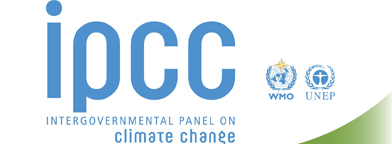
The Intergovernmental Panel on Climate Change (IPCC) releases its Special Report on the Ocean and the Cryosphere in a Changing Climate (SROCC)
Thursday, 26 September 2019
The new Intergovernmental Panel on Climate Change (IPCC) Special Report on The Ocean and Cryosphere in a Changing Climate (SROCC), released on 25 September, is the first IPCC Report to focus on the role of the ocean in the global climate and the effects of climate change on the ocean. Ocean acidification and ocean deoxygenation are two biogeochemical phenomena which are extensively covered throughout the report. One of the headline statements of the report reads:
"Over the 21st century, the ocean is projected to transition to unprecedented conditions with increased temperatures (virtually certain), greater upper ocean stratification (very likely), further acidification (virtually certain), oxygen decline (medium confidence), and altered net primary production (low confidence). Marine heatwaves (very high confidence) and extreme El Niño and La Niña events (medium confidence) are projected to become more frequent. The Atlantic Meridional Overturning Circulation (AMOC) is projected to weaken (very likely). The rates and magnitudes of these changes will be smaller under scenarios with low greenhouse gas emissions (very likely). {3.2; 5.2; 6.4; 6.5; 6.7; Box 5.1; Figures SPM.1, SPM.3}"
The full Report, Summary for Policymakers, SROCC factsheet and other materials are available for download from https://www.ipcc.ch/srocc/home/.
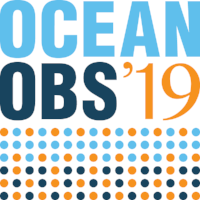
Invitation to join OceanObs’19 Breakout Sessions on "Integrated Ocean Observations", 17-19 September, 2-4 PM HST, Honolulu, Hawaii
Tuesday, 10 September 2019
For those of you attending the OceanObs'19 Conference, we would like to invite you to join the series of three breakout sessions on "Integrated Ocean Observations", co-organized by members of three GOOS Panels of Experts, including IOCCP as GOOS Biogeochemistry Panel. We especially invite you to join us on Wednesday, September 18, at 14:00 local time in Hawaii, for the session "Integrated Ocean Observations II: Diverse Stakeholder Needs" to discuss how diverse stakeholders can work together to improve and build existing and emerging observing systems under the Framework for Ocean Observing in the next decade. Please see the ![]() attached flyer for a session description and agenda, as well as the
attached flyer for a session description and agenda, as well as the ![]() speaker bios and a list of OceanObs'19 Community White Papers particularly relevant to this session.
speaker bios and a list of OceanObs'19 Community White Papers particularly relevant to this session.
On Tuesday, Sep. 17, Jack Barth (Oregon State University, USA) and Sung Yong Kim (KAIST, South Korea) will lead the discussion on "Integrated Ocean Observations I: Across Geographic Scales." Please see the session description and agenda ![]() attached here. There series will conclude on Thursday, Sep. 19, when Patricia Miloslavich (University of Tasmania, Australia; Universidad Simón Bolívar, Venezuela) and Nic Bax (CSIRO, Australia) will lead the breakout session on "Integrated Ocean Observations III: Across disciplines and networks." Please see the
attached here. There series will conclude on Thursday, Sep. 19, when Patricia Miloslavich (University of Tasmania, Australia; Universidad Simón Bolívar, Venezuela) and Nic Bax (CSIRO, Australia) will lead the breakout session on "Integrated Ocean Observations III: Across disciplines and networks." Please see the ![]() attached invitation flyer, agenda and background document for that session as well.
attached invitation flyer, agenda and background document for that session as well.

2020 Ocean Sciences Meeting: sessions relevant for marine biogeochemistry
Monday, 02 September 2019
On this page you will find a list of subjectively selected 2020 Ocean Sciences Meeting sessions relevant to the marine biogeochemistry community. If you're interested in adding a session to this list, please contact the This email address is being protected from spambots. You need JavaScript enabled to view it..
Abstract submission deadline: 11 September 2019, 11:59 pm EDT.
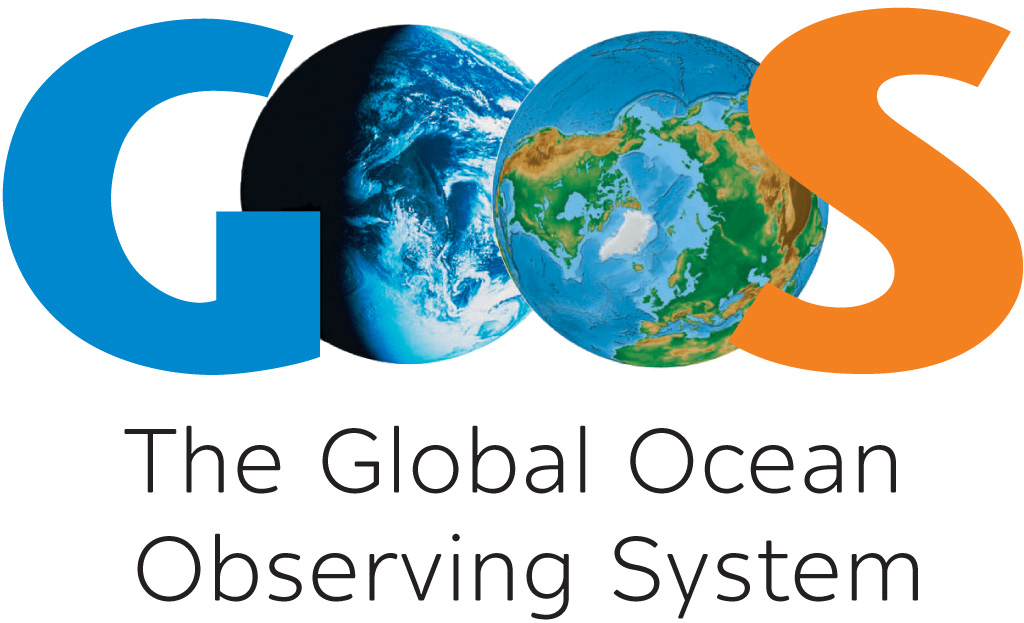
GOOS is looking for six new and enthusiastic members to join its Steering Committee
Wednesday, 21 August 2019
On behalf of Toste Tanhua, Co-Chair of GOOS, we would like to let you know about an open call for six new and enthusiastic members to join the Steering Committee of the Global Ocean Observing System Programme (GOOS). The GOOS Steering committee currently is made up of scientific and technical experts that guide the work of the components of GOOS; observing system requirements through the three expert Panels on Physics and Climate, Biogeochemistry, and BioEco; the work on implementation through the GOOS Regional Alliances (GRAs) and the Observation Coordination Group (OCG); and the work of the GOOS Office. Membership of the GOOS Steering Committee is for a 2-year renewable term.
The call will close on 30 September 2019 and selection will be made by 31 October 2019. Please see below to view the complete call.

Shaping the vision for the next decade of marine biogeochemistry observations through OceanObs'19 Community White Papers
Monday, 05 August 2019
IOCCP is heavily engaged in shaping the community vision and recommendations for sustained marine biogeochemistry and integrated ocean observations for the next decade. With the OceanObs'19 Conference just around the corner, we encourage you to take a look at a number of Community White Papers already published in the special issue of Frontiers in Marine Science. There you can read about the proposed future ocean governance models, lessons learnt from implementing the Framework for Ocean Observing, but also about challenges and recommendations from the GOA-ON, SOCONET, ARGO networks or the time series community. Please see below for a list of full references to these papers. The list will be updated as new relevant white papers get published.

OceanObs Research Coordination Network (RCN) Annual Meeting, 16 February 2020, San Diego, CA, USA
Wednesday, 24 July 2019
The OceanObs Research Coordination Network (RCN) will host its annual meeting on February 16, 2020, in San Diego, CA, immediately preceding the AGU/TOS Ocean Sciences Meeting (https://www2.agu.org/ocean-sciences-meeting/). The meeting will be dedicated to the synthesis of threads and recommendations emerging from the OceanObs’19 Conference, including planning for the implementation of initiatives emerging from OceanObs’19. The meeting will advance links between observation networks and operational users to facilitate the delivery of critical information to stakeholders, and to address critical policy issues that require multidisciplinary ocean observing systems.
Deadline for expressions of interest to attend: 31 October 2019. Please contact This email address is being protected from spambots. You need JavaScript enabled to view it. and This email address is being protected from spambots. You need JavaScript enabled to view it..
The IOCCP promotes the development of a global network of ocean carbon observations for research through technical coordination and communication services, international agreements on standards and methods, and advocacy and links to the global observing systems. The IOCCP is co-sponsored by the Scientific Committee on Oceanic Research and the Intergovernmental Oceanographic Commission of UNESCO. Read more…
Calendar
|
|
IOCCP meetings, IOCCP-related meetings as well as events related to a wider scope in marine biogeochemistry. |



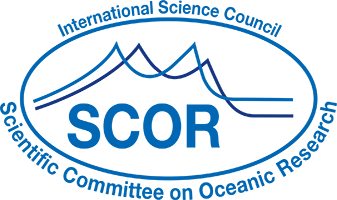

 Please wait...
Please wait...